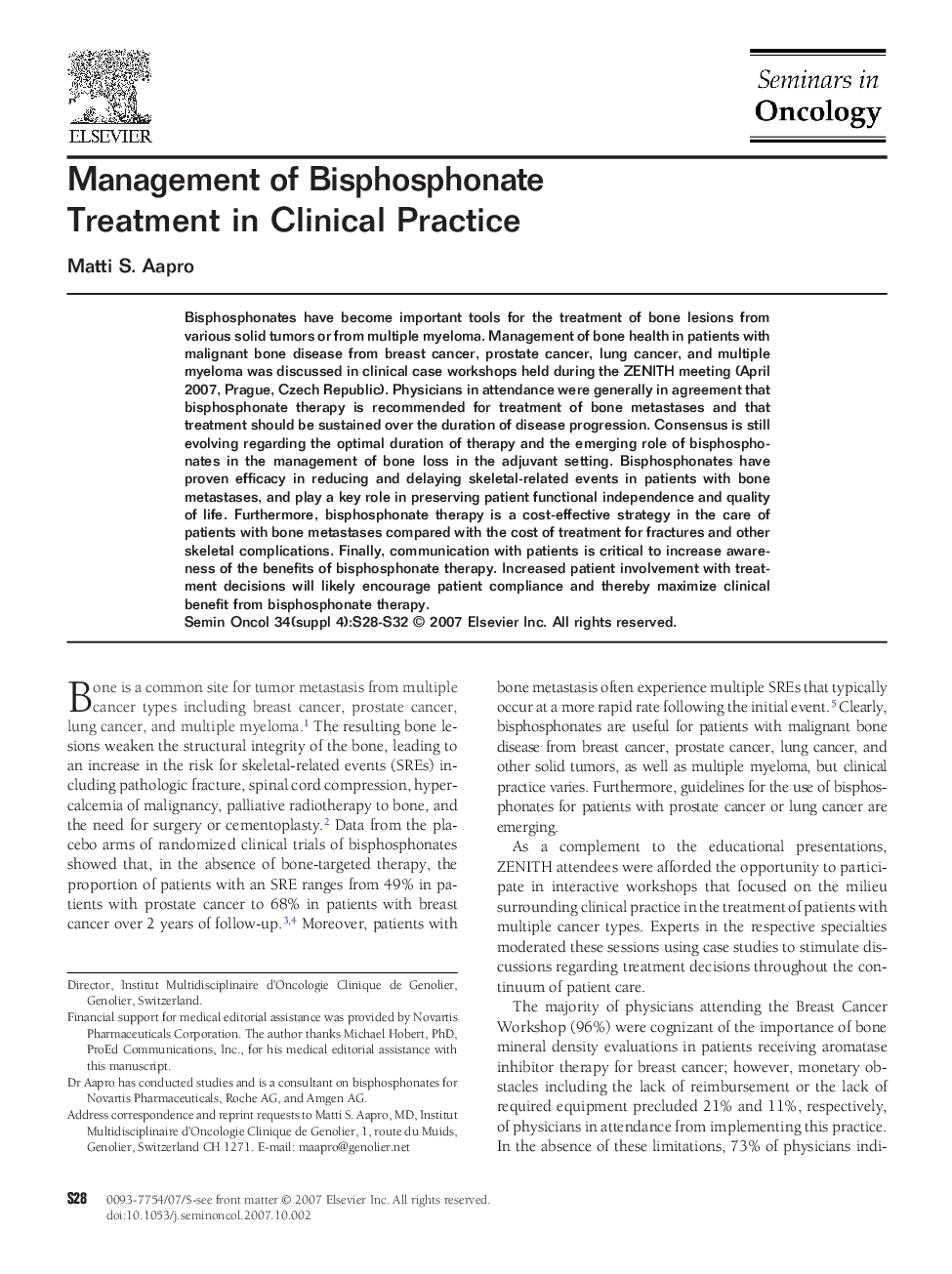| Article ID | Journal | Published Year | Pages | File Type |
|---|---|---|---|---|
| 2163027 | Seminars in Oncology | 2007 | 5 Pages |
Abstract
Bisphosphonates have become important tools for the treatment of bone lesions from various solid tumors or from multiple myeloma. Management of bone health in patients with malignant bone disease from breast cancer, prostate cancer, lung cancer, and multiple myeloma was discussed in clinical case workshops held during the ZENITH meeting (April 2007, Prague, Czech Republic). Physicians in attendance were generally in agreement that bisphosphonate therapy is recommended for treatment of bone metastases and that treatment should be sustained over the duration of disease progression. Consensus is still evolving regarding the optimal duration of therapy and the emerging role of bisphosphonates in the management of bone loss in the adjuvant setting. Bisphosphonates have proven efficacy in reducing and delaying skeletal-related events in patients with bone metastases, and play a key role in preserving patient functional independence and quality of life. Furthermore, bisphosphonate therapy is a cost-effective strategy in the care of patients with bone metastases compared with the cost of treatment for fractures and other skeletal complications. Finally, communication with patients is critical to increase awareness of the benefits of bisphosphonate therapy. Increased patient involvement with treatment decisions will likely encourage patient compliance and thereby maximize clinical benefit from bisphosphonate therapy.
Related Topics
Life Sciences
Biochemistry, Genetics and Molecular Biology
Cancer Research
Authors
Matti S. Aapro,
